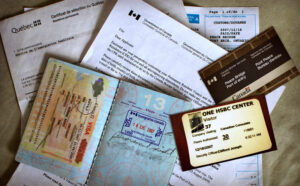6 Things You Need to Negotiate Before Saying “Yes” to An Overseas Job

If you’re like most Filipinos, working abroad is probably high on your list of career goals. Most people living in this country view jobs abroad as a chance to earn a higher salary while others see it as an opportunity to widen their horizons and meet new work colleagues. Whatever your reasons for wanting to work abroad, adequate preparation is a must. You have to make sure that all your bases are covered to ensure a smooth transition when you start working in another country.
Here are a few items to tick off in your checklist before going off on a one-way ticket to your dream job abroad.
TOPICS
1. Compensation

We all know that the main reason Filipinos choose to work abroad is for the higher salary. But making a decision based on the salary offer is just the tip of the iceberg. You need to know what your actual take home pay will be after taxes and other living expenses have been deducted. For starters, you need to know what your living arrangement will be like, and who will cover the costs.
Some companies will offer to pay rent for a few months until you find your own housing, after which you’ll have pay out of pocket. Others will offer to pay for your living quarters for the duration of your contract, but will not cover your utility bills and food expenses. Transportation costs and other day to day expenses might eat up most of your salary in places that have higher living costs, so it’s important to know what your actual take home pay will be before accepting the assignment.
2. Work Contract

First of all, you need to make sure that you’re getting a legitimate offer. Do your due diligence and find out more about the company, or research about the broker if you’re dealing with one. An offer that seems too good to be true probably is.
Do not hesitate to ask questions about your work contract. No detail is too small or insignificant. Aside from the duration of your contract, it’s important to know what your vacation leaves will be like: how many days in a year? Can it be on a staggered basis? Will the company pay for your flight home?
3. Work Permit

A work visa is a requirement for most overseas assignments, so make sure that you’re on top of this. Prospective employers usually handle the visa arrangements on your behalf, while some will only go so far as to assist you in obtaining one. You’ll be required to submit lots of paperwork before you’ll be granted with a work permit, including your birth certificate, prospective employer’s endorsement and the like.
It goes without saying that you should familiarize yourself with the details of the work permit. How long is it good for? If your spouse is granted a visa, are they allowed to work in the host country, or not? Does the work authorization allow you to get another job, or are you bound exclusively to your current employer? Know the limits and rights of the work permit, and make sure that you don’t overstep your boundaries to avoid any legal problems.
4. Insurance

Most work contracts include life, health, accident, and travel insurance benefit for OFW’s, while others might not. Whatever the case, make sure that you have adequate coverage during your stay abroad. You need to make sure that you have the capacity to avail of full medical treatment when the need arises. If you’re bringing your pregnant spouse, determine how much health coverage she’ll get when she gives birth in a foreign hospital.
You might have some insurance, but it might not be enough given your unique circumstances. If there are any limitations in the fine print, consider supplementing your employee benefits with insurance paid out of your pocket. Do whatever steps are necessary to ensure you have access to proper medical treatment when you need it.
5. Accommodations
Aside from your salary, your living arrangement during your assignment abroad will determine how much your take-home pay will be. It will be the basis for how much you’ll allot for daily transportation costs, monthly rent, and home maintenance costs. For example, employer-sponsored accommodations might not have a kitchen or laundry facilities in the immediate vicinity. This means that you might end up buying take out on a regular basis, which might not help if you stick to a budget compared to cooking your own meals. These seem like minor details, but the time and costs will add up in the long run.
6. Retirement Plan

Whether you plan to stay on assignment temporarily or on a permanent basis, there’s no better time than now to start preparing for your retirement. Does your work contract include a retirement plan? If so, you need to know other details like whether or not you can contribute to it, if contributions will be matched by your employer, what the restrictions are, or when you can begin using this benefit. If you’ll be at your host country on a temporary basis, you need to know if retirement pay can be paid out as part of your salary or if it will be included as a lump sum payment once your work contract ends. Some opt to have their retirement plan transferred to a new employer, while others pay out of pocket to continue the plan. Whatever you decide on, it’s best to include a retirement plan in your checklist before accepting your overseas job.
Working overseas is a wonderful opportunity to find better work prospects to secure your future finances, but it will only continue to be a great experience if you’ve got all of these areas covered. Remember that you’ll be uprooted from everything that is familiar to you, so plan well. Your future overseas foreign worker-self will definitely thank you.






No comment available yet!